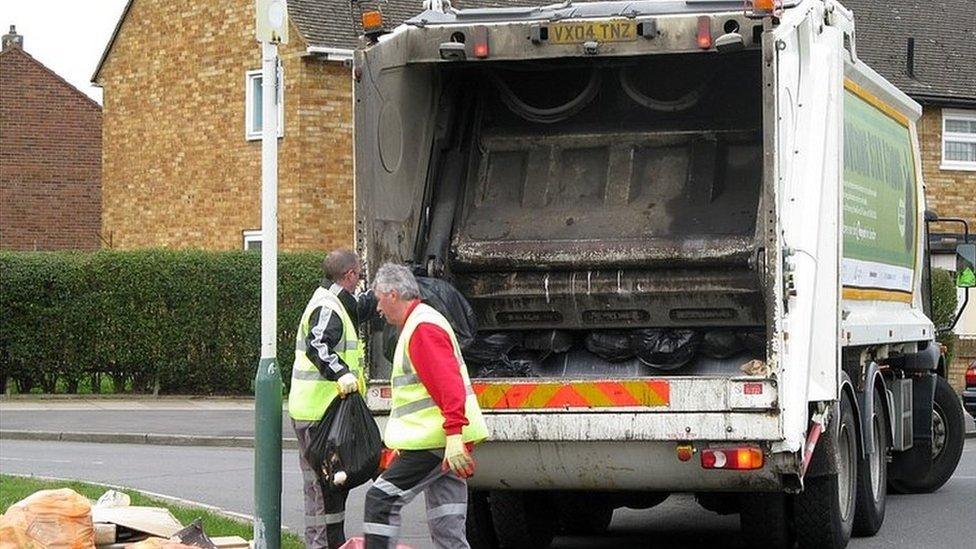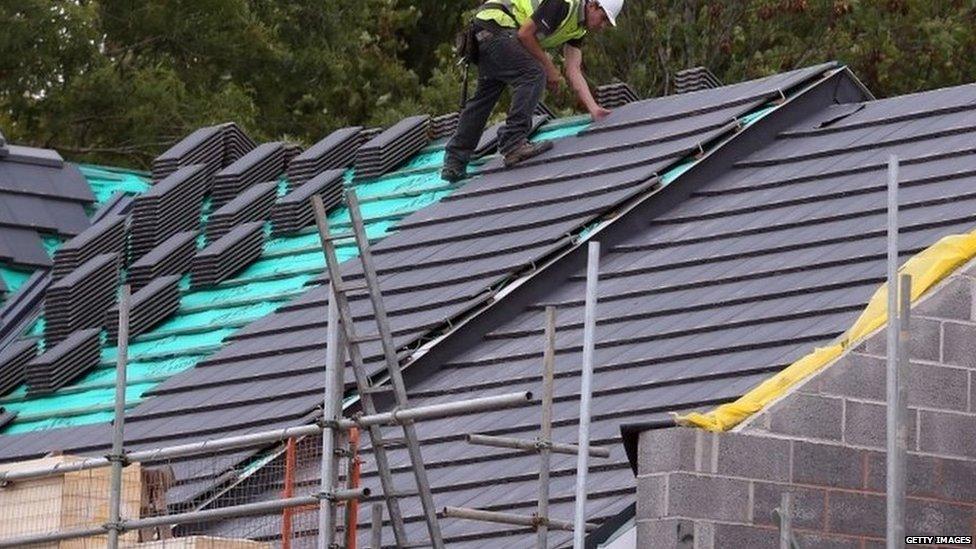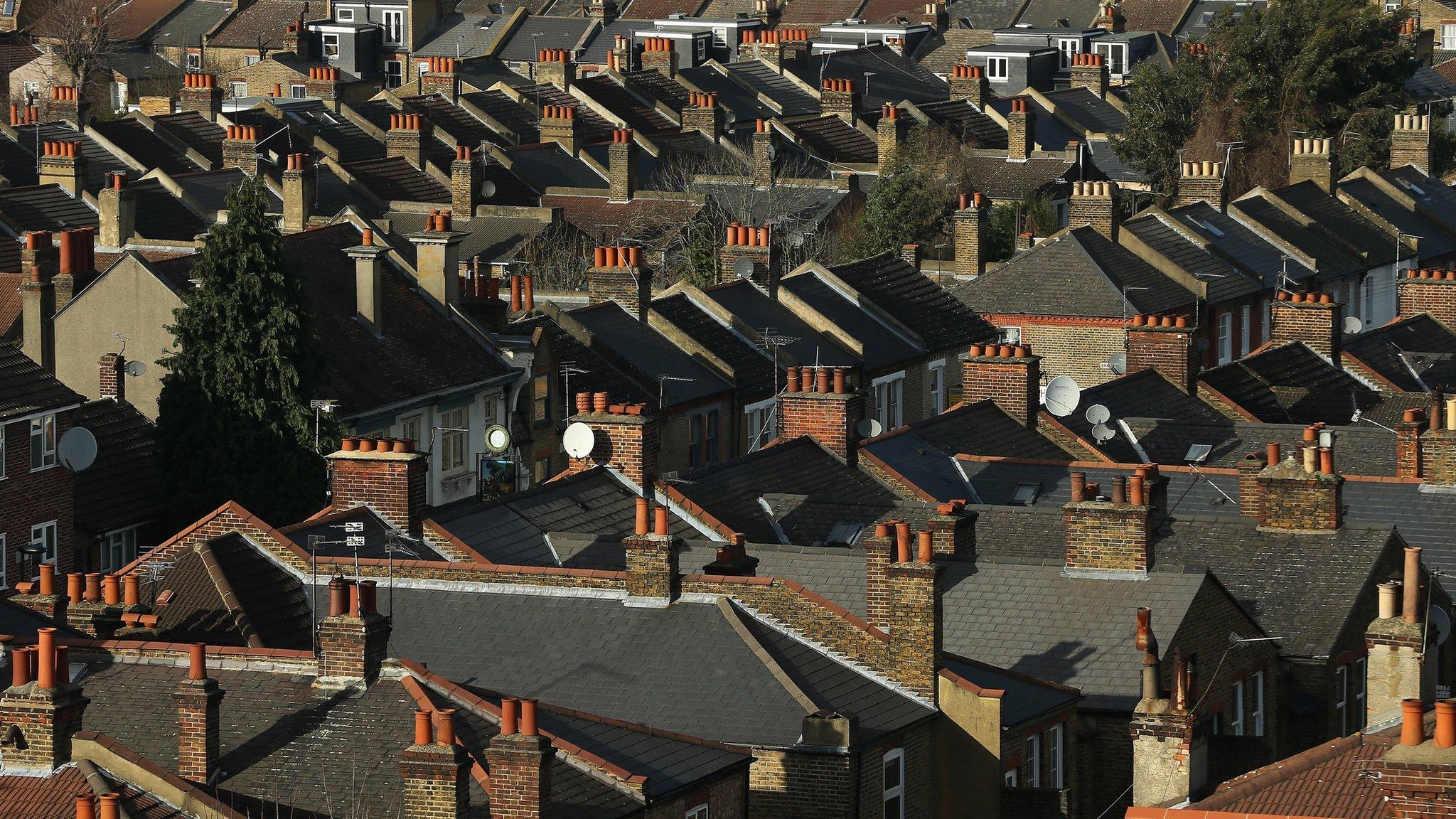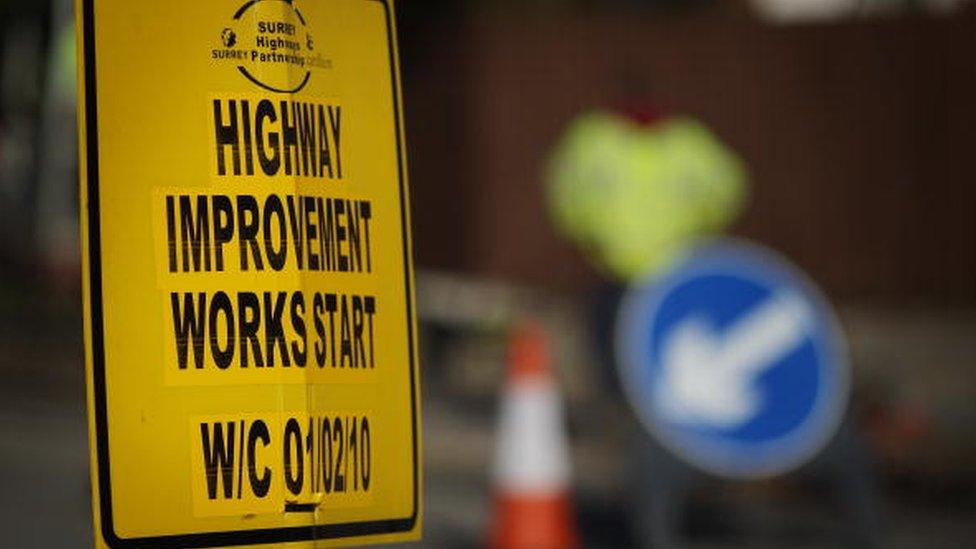Councils warn of £5.8bn 'funding gap' by 2020
- Published
- comments

Councils warn there is no longer the room for efficiencies that there was in the past
English local authorities face a £5.8bn funding gap by 2020 without new sources of revenue, council chiefs are warning.
Services are running on a "shoestring" and councils must be at the "front of the queue" for extra cash, the Local Government Association will say.
Its chair, Lord Porter, will argue they must be free to raise more council tax and keep all business rates income.
Ministers say a £2.3bn infrastructure fund for councils will speed up the process of building new homes.
Communities Secretary Sajid Javid said the funding, which was announced in November's Autumn Statement and which councils will be able to bid for up to 2021, could "unlock" 100,000 homes in areas of high demand.
Tuesday's LGA annual conference in Birmingham takes place against the backdrop of a campaign by Labour for an end to austerity and amid growing calls from Conservative MPs for targeted investment in public services, including the lifting of the 1% pay cap on public sector workers.
The Grenfell Tower fire, which has led to the resignation of senior figures in Kensington and Chelsea Council and calls for external managers to be brought in to run the council, has prompted a fierce political debate about the funding of local government, the contracting out of services and accountability to residents.
'Sustainable'
Addressing the annual gathering, Lord Porter - a Lincolnshire district councillor who is a Conservative member of the House of Lords - will say local government remains part of the fabric of the country "even more so during this period of uncertainty for the nation".
But he will suggest local government is beginning to buckle under the strain of years of cutbacks, warning that by 2020, councils will have lost 75p out of every £1 they received in core central government grants in 2015 and that half of English councils will receive none of this revenue at all.

Councils are being invited to bid for £2.3bn funding to unlock housing bottlenecks
Even if councils stopped filling in potholes, maintaining parks and open spaces, closed all children's centres, libraries, museums and leisure centres, turned off every street light and shut all discretionary bus routes, they still would not have saved enough money to plug the gap, the LGA is warning.
"Councils can no longer be expected to run our vital local services on a shoestring," he will say. "We must shout from the roof tops for local government to be put back on a sustainable financial footing."
Extra funding, he will suggest, is needed to invest in areas that "make a differences to people's lives, such as new housing, extra school places and care for the elderly.
"If austerity is coming to an end, then we need to make sure councils are at the front of the queue for more money," he will argue.
"Only with adequate funding and the right powers can councils help the government tackle the challenges facing our nation now and in the future."
Council tax
The LGA is urging ministers to scrap rules requiring councils to get the approval of their residents in a referendum if they want to raise council tax by more than 2% in the case of district councils and fire and rescue authorities or 5% in the case of most county and unitary councils.
They also say efforts should be accelerated to enable local authorities to keep all of the £26bn they collect each year in business rates, instead of the 50% cap that applies at the moment.
Legislation introduced in the last Parliament would have introduced 100% business rates retention, but the bill failed to become law before the snap election and was not re-introduced in last week's Queen's Speech.
The Department for Communities and Local Government said a new four-year financial settlement had given councils increased financial certainty, while town halls were also able to raise millions in extra funding for social care through a precept on council tax introduced in 2013.
"Ministers have committed through a manifesto pledge to further help local authorities control more of what they raise, and we're working closely with the LGA to agree the best way to achieve this," a spokesman said.
Addressing the conference, Mr Javid will outline details of the bidding process for a new fund, aimed at overcoming some of the obstacles to new housing, such as poor transport links and digital infrastructure.
The capital grant funding will be allocated to local authorities on a competitive basis, with the intention that building work will start immediately once proposals have been agreed.
Other speakers at the three-day event include shadow local government secretary Andrew Gwynne, Plaid Cymru leader Leanne Wood and West Midlands Mayor Andy Street.
- Published4 March 2017

- Published20 March 2017

- Published28 March 2017
